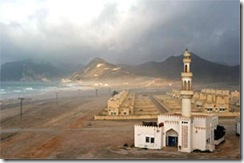Friendi Mobile, the Middle East’s leading mobile virtual network operator (MVNO) reported that it had reached the 150,000 subscriber milestone in Oman in early March. Its subscriber base accounts for around four per cent of all mobile subscribers in the country, and Friendi Group CEO, Mikkel Vinter believes there is further growth to be enjoyed in the market.
“We are pleased to have achieved this number of users in 10 months of operation,” Vinter commented. “Our target from day one has been a market share in Oman in the upper end of the single-digit percentages, and I believe we are well on track to achieving that.” 
Oman is the first market in the Gulf in which mobile resellers have been launched commercially. Jordan shall be the next
The crowded mobile reseller market in Oman, which has five licensed players, three of which are operational, is already starting to separate the players that have a likely future from the ones that may not. At a conference held in Dubai in the middle of March, Mohammed Alhashili, CEO of Mazoon Mobile disappointed the audience by not detailing the reseller’s operational performance since launching in Oman in December 2009 as the country’s third mobile reseller.
Alhashili offered no detail with regards to the number of subscribers the operator has added or the company’s ARPU, saying the reseller required more time to establish its business before revealing such details.
Unconfirmed reports from Oman suggest Mazoon Mobile has added around 15,000 subscribers since launch, and given its strategy to offer deferred credits to subscribers who sign up, is believed to be finding participation in the market challenging.





